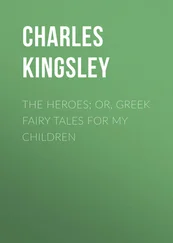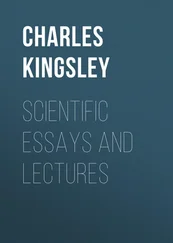Charles Kingsley - The Roman and the Teuton
Здесь есть возможность читать онлайн «Charles Kingsley - The Roman and the Teuton» — ознакомительный отрывок электронной книги совершенно бесплатно, а после прочтения отрывка купить полную версию. В некоторых случаях можно слушать аудио, скачать через торрент в формате fb2 и присутствует краткое содержание. Жанр: foreign_prose, История, foreign_edu, foreign_antique, на английском языке. Описание произведения, (предисловие) а так же отзывы посетителей доступны на портале библиотеки ЛибКат.
- Название:The Roman and the Teuton
- Автор:
- Жанр:
- Год:неизвестен
- ISBN:нет данных
- Рейтинг книги:3 / 5. Голосов: 1
-
Избранное:Добавить в избранное
- Отзывы:
-
Ваша оценка:
- 60
- 1
- 2
- 3
- 4
- 5
The Roman and the Teuton: краткое содержание, описание и аннотация
Предлагаем к чтению аннотацию, описание, краткое содержание или предисловие (зависит от того, что написал сам автор книги «The Roman and the Teuton»). Если вы не нашли необходимую информацию о книге — напишите в комментариях, мы постараемся отыскать её.
The Roman and the Teuton — читать онлайн ознакомительный отрывок
Ниже представлен текст книги, разбитый по страницам. Система сохранения места последней прочитанной страницы, позволяет с удобством читать онлайн бесплатно книгу «The Roman and the Teuton», без необходимости каждый раз заново искать на чём Вы остановились. Поставьте закладку, и сможете в любой момент перейти на страницу, на которой закончили чтение.
Интервал:
Закладка:
Charles Kingsley
The Roman and the Teuton A Series of Lectures delivered before the University of Cambridge
PREFACE
Never shall I forget the moment when for the last time I gazed upon the manly features of Charles Kingsley, features which Death had rendered calm, grand, sublime. The constant struggle that in life seemed to allow no rest to his expression, the spirit, like a caged lion, shaking the bars of his prison, the mind striving for utterance, the soul wearying for loving response,—all that was over. There remained only the satisfied expression of triumph and peace, as of a soldier who had fought a good fight, and who, while sinking into the stillness of the slumber of death, listens to the distant sounds of music and to the shouts of victory. One saw the ideal man, as Nature had meant him to be, and one felt that there is no greater sculptor than Death.
As one looked on that marble statue which only some weeks ago had so warmly pressed one’s hand, his whole life flashed through one’s thoughts. One remembered the young curate and the Saint’s Tragedy; the chartist parson and Alton Locke; the happy poet and the Sands of Dee; the brilliant novel-writer and Hypatia and Westward-Ho; the Rector of Eversley and his Village Sermons; the beloved professor at Cambridge, the busy canon at Chester, the powerful preacher in Westminster Abbey. One thought of him by the Berkshire chalk-streams and on the Devonshire coast, watching the beauty and wisdom of Nature, reading her solemn lessons, chuckling too over her inimitable fun. One saw him in town-alleys, preaching the Gospel of godliness and cleanliness, while smoking his pipe with soldiers and navvies. One heard him in drawing-rooms, listened to with patient silence, till one of his vigorous or quaint speeches bounded forth, never to be forgotten. How children delighted in him! How young, wild men believed in him, and obeyed him too! How women were captivated by his chivalry, older men by his genuine humility and sympathy!
All that was now passing away—was gone. But as one looked on him for the last time on earth, one felt that greater than the curate, the poet, the professor, the canon, had been the man himself, with his warm heart, his honest purposes, his trust in his friends, his readiness to spend himself, his chivalry and humility, worthy of a better age.
Of all this the world knew little;—yet few men excited wider and stronger sympathies.
Who can forget that funeral on the 28th Jan., 1875, and the large sad throng that gathered round his grave? There was the representative of the Prince of Wales, and close by the gipsies of the Eversley common, who used to call him their Patrico-rai, their Priest-King. There was the old Squire of his village, and the labourers, young and old, to whom he had been a friend and a father. There were Governors of distant Colonies, officers, and sailors, the Bishop of his diocese, and the Dean of his abbey; there were the leading Nonconformists of the neighbourhood, and his own devoted curates, Peers and Members of the House of Commons, authors and publishers; and outside the church-yard, the horses and the hounds and the huntsman in pink, for though as good a clergyman as any, Charles Kingsley had been a good sportsman too, and had taken in his life many a fence as bravely as he took the last fence of all, without fear or trembling. All that he had loved, and all that had loved him was there, and few eyes were dry when he was laid in his own yellow gravel bed, the old trees which he had planted and cared for waving their branches to him for the last time, and the grey sunny sky looking down with calm pity on the deserted rectory, and on the short joys and the shorter sufferings of mortal men.
All went home feeling that life was poorer, and every one knew that he had lost a friend who had been, in some peculiar sense, his own. Charles Kingsley will be missed in England, in the English colonies, in America, where he spent his last happy year; aye, wherever Saxon speech and Saxon thought is understood. He will be mourned for, yearned for, in every place in which he passed some days of his busy life. As to myself, I feel as if another cable had snapped that tied me to this hospitable shore.
When an author or a poet dies, the better part of him, it is often said, is left in his works. So it is in many cases. But with Kingsley his life and his works were one. All he wrote was meant for the day when he wrote it. That was enough for him. He hardly gave himself time to think of fame and the future. Compared with a good work done, with a good word spoken, with a silent grasp of the hand from a young man he had saved from mischief, or with a ‘Thank you, Sir,’ from a poor woman to whom he had been a comfort, he would have despised what people call glory, like incense curling away in smoke. He was, in one sense of the word, a careless writer. He did his best at the time and for the time. He did it with a concentrated energy of will which broke through all difficulties. In his flights of imagination, in the light and fire of his language he had few equals, if any; but the perfection and classical finish which can be obtained by a sustained effort only, and by a patience which shrinks from no drudgery, these are wanting in most of his works.
However, fame, for which he cared so little, has come to him. His bust will stand in Westminster Abbey, in the Chapel of St. John the Baptist, by the side of his friend, Frederick Maurice; and in the Temple of Fame which will be consecrated to the period of Victoria and Albert, there will be a niche for Charles Kingsley, the author of Alton Locke and Hypatia.
Sooner or later a complete edition of his works will be wanted, though we may doubt whether he himself would have wished all his literary works to be preserved. From what I knew of him and his marvellous modesty, I should say decidedly not. I doubt more especially, whether he would have wished the present book, The Roman and the Teuton , to be handed down to posterity. None of his books was so severely criticised as this volume of Lectures, delivered before the University of Cambridge, and published in 1864. He himself did not republish it, and it seems impossible to speak in more depreciatory terms of his own historical studies than he does himself again and again in the course of his lectures. Yet these lectures, it should be remembered, were more largely attended than almost any other lectures at Cambridge. They produced a permanent impression on many a young mind. They are asked for again and again, and when the publishers wished for my advice as to the expediency of bringing out a new and cheaper edition, I could not hesitate as to what answer to give.
I am not so blinded by my friendship for Kingsley as to say that these lectures are throughout what academical lectures ought to be. I only wish some one would tell me what academical lectures at Oxford and Cambridge can be, as long as the present system of teaching and examining is maintained. It is easy to say what these lectures are not. They do not profess to contain the results of long continued original research. They are not based on a critical appreciation of the authorities which had to be consulted. They are not well arranged, systematic or complete. All this the suddenly elected professor of history at Cambridge would have been the first to grant. ‘I am not here,’ he says, ‘to teach you history. I am here to teach you how to teach yourselves history.’ I must say even more. It seems to me that these lectures were not always written in a perfectly impartial and judicial spirit, and that occasionally they are unjust to the historians who, from no other motive but a sincere regard for truth, thought it their duty to withhold their assent from many of the commonly received statements of mediaeval chroniclers.
Читать дальшеИнтервал:
Закладка:
Похожие книги на «The Roman and the Teuton»
Представляем Вашему вниманию похожие книги на «The Roman and the Teuton» списком для выбора. Мы отобрали схожую по названию и смыслу литературу в надежде предоставить читателям больше вариантов отыскать новые, интересные, ещё непрочитанные произведения.
Обсуждение, отзывы о книге «The Roman and the Teuton» и просто собственные мнения читателей. Оставьте ваши комментарии, напишите, что Вы думаете о произведении, его смысле или главных героях. Укажите что конкретно понравилось, а что нет, и почему Вы так считаете.












